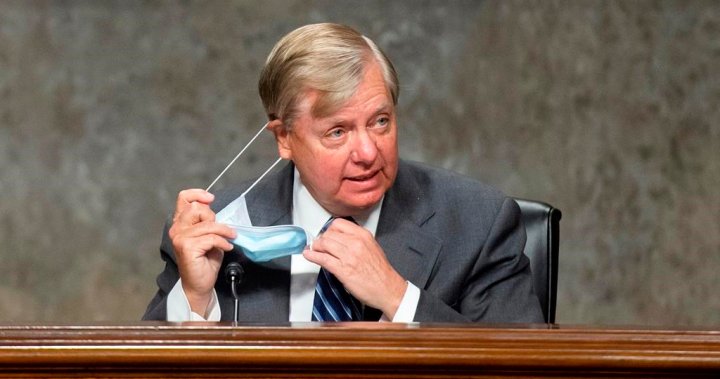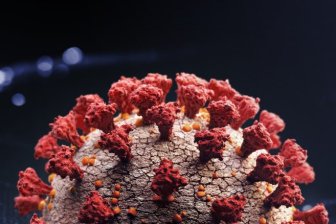Republican U.S. Senator Lindsey Graham announced on Monday that he has tested positive for COVID-19 despite being vaccinated, has flu-like symptoms and will be self-quarantining for 10 days.
“I am very glad I was vaccinated because without vaccination I am certain I would not feel as well as I do now. My symptoms would be far worse,” Graham, 66, wrote on Twitter.
The South Carolina Republican, a leading conservative voice in the Senate, said he began experiencing flu-like symptoms on Saturday and sought medical attention on Monday morning. He was later informed by a congressional physician that he had tested positive.
“I feel like I have a sinus infection and at present time I have mild symptoms,” Graham, a staunch ally of former President Donald Trump, wrote in a pair of tweets. “I will be quarantining for ten days.”

His announcement comes at a crucial time for the closely divided Senate, where Democratic leaders hope to advance President Joe Biden’s agenda in coming weeks by pushing through a roughly $1 trillion bipartisan infrastructure bill.
Graham is among a group of 17 Senate Republicans who have backed the bipartisan infrastructure legislation in procedural votes. The measure needs Republican votes to achieve the 60-vote threshold required for most legislation in the 100-seat chamber.
The Senate is split 50-50 between Republicans and Democrats, who control the chamber only because of Vice President Kamala Harris’ tie-breaking vote.
It was not clear how much contact Graham has had recently with other members of the Senate.
Read more:
Georgia official says Lindsey Graham suggested he should throw out ballots
A spokesman for Senator Joe Manchin, a leading Democrat on infrastructure, could not confirm whether Graham attended a recent private gathering hosted by Manchin, but added: “Senator Manchin is fully vaccinated and following the CDC guidelines for those exposed to a COVID positive individual.”
Graham’s office did not respond to questions about the gathering.
Graham did not say whether he had tested positive for the Delta variant of the coronavirus, which has been blamed for a recent surge in infections in the United States, particularly Southern states with relatively low vaccination rates.
Forty-six percent of South Carolina’s population has received at least one dose of a COVID-19 vaccine, well below the national average of 58%, according to the Reuters COVID-19 Vaccination Tracker. (Reporting by David Morgan; Editing by Jonathan Oatis and Paul Simao)
















































